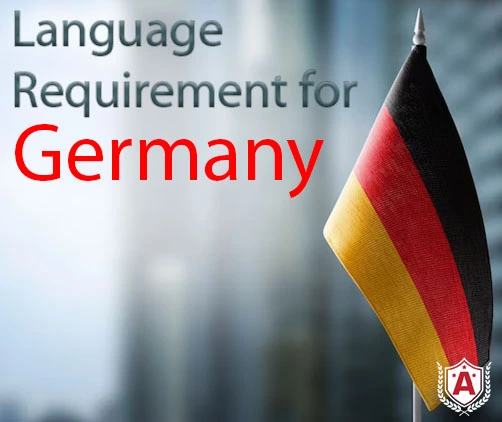Updated on May, 23 2024 06:55 IST
 Study Mass Communication in abroad countries is a dream of many individuals. It is among the most popular academic disciplines for those who wish to learn the various methods of dissemination information to a broad audience. Basically, in this course, you will be able to learn the various means why which you will be able to convey ideas, opinions, and knowledge to a larger group of individuals. You will also comprehend hw the different media channels function and what their societal significance is. And one of the most important things that you will learn as a student of mass communication is the impact of media channels and the information they relay on human behavior. Pursuing a degree in this specialization from a foreign university will allow you to enhance your career prospects. You will get an comprehensive overview of mass communication and its history as a student. You can also expect to learn more about the development of the various media and mass communication platforms that exist in today’s modern and digitalized world. And when you learn all this, you will be better prepared for the job market anywhere across this globe. But what does it take to get admission to this prestigious specialization? What kind of documents will you need? What will be the eligibility criteria, the admission procedure, and the fee structure? Confused? Worry not.
Study Mass Communication in abroad countries is a dream of many individuals. It is among the most popular academic disciplines for those who wish to learn the various methods of dissemination information to a broad audience. Basically, in this course, you will be able to learn the various means why which you will be able to convey ideas, opinions, and knowledge to a larger group of individuals. You will also comprehend hw the different media channels function and what their societal significance is. And one of the most important things that you will learn as a student of mass communication is the impact of media channels and the information they relay on human behavior. Pursuing a degree in this specialization from a foreign university will allow you to enhance your career prospects. You will get an comprehensive overview of mass communication and its history as a student. You can also expect to learn more about the development of the various media and mass communication platforms that exist in today’s modern and digitalized world. And when you learn all this, you will be better prepared for the job market anywhere across this globe. But what does it take to get admission to this prestigious specialization? What kind of documents will you need? What will be the eligibility criteria, the admission procedure, and the fee structure? Confused? Worry not.
| Duration | Bachelors: 3-5 years Masters: 1-3 years |
| Cost of Study | $9,000 to $47,000 per year for bachelors |
| Medium of Instruction | English |
| English Proficiency | TOEFL or IELTS |
| Field of Study | Arts |
| Intakes | Spring and Fall |
| Universities Available | 1000+ |
| Most In-demand Countries | United States, Ireland, United Kingdom, Germany, Australia, New Zealand |
Choosing the perfect country to study Mass Communication abroad can be a daunting task, as there are numerous options to choose from. And when you are clueless, the best idea is to avail the guidance offered by the most seasoned experts at Anigdha Overseas Education Consultant. Studying Mass Communications abroad can give you the chance to live in a new country and experience a different culture. The experience is fantastic and that can help you better understand yourself and the world around you. It is also a great way to learn new languages and immerse yourself in a new culture. Let’s look into the best countries for studying Mass communications abroad and what makes these countries so special for pursuing your degree:
USA:
The United States of America are an amazing destination if you are willing to pursue mass communication from an abroad country. They offer amazing programs for students across the many famous universities ready to welcome foreign students.
High-quality study programs
High employment opportunities
A well-respected degree
Globally top ranked universities.
UK:
UK is primarily famous among students pursuing mass communication courses because of its excellent colleges. This makes sure students are ready to wet their feet in the world of employment sooner. Moreover, the environment here is pretty welcoming for foreign students.
An increase in credibility
Experience an intercultural environment
Lucrative courses
A wide range of opportunities
Australia:
The degrees earned from Australian universities are very well respected across the globe. Moreover, you can also find excellent employment opportunities in Australia after the completion of your mass communication degree.
The country offers a comfortable living environment
Part time working flexibility
High-paying salaries
World-renowned universities.
Canada:
Canada is famous for offering affordable study-abroad programs to its students. Moreover, the job market is fairly competitive, pushing you to perform better in your field of study and be consistent with your efforts.
Top-quality education
Multicultural environment
A practical approach to learning
Value-for-money
Exposure to a global network
New Zealand:
New Zealand is a perfect destination for students seeking quality education in mass communication and experience an enriching cultural experience. New Zealand offers top-tier business schools with world-renowned faculty members.
Educational excellence
Globally recognized universities
Good quality of life
Amazing career prospects.
Ireland:
Ireland is the ideal destination for students seeking a well-rounded education that will prepare them for success in their careers. Overall, choosing to study a degree in mass communication in Ireland is a wise decision that promises excellent results.
Cheaper education
Affordable cost of living
Globally-renowned study programs
Amazing teachers who have years of experience.
France:
France is an excellent country for students seeking to pursue a degree in mass communication. The nation has one of the world's most competitive and prestigious education systems, with highly esteemed universities.
An international approach
A well-respected degree
Great value for money
Diverse opportunities.
Germany:
Germany is a prime destination for students who are looking to pursue a caree in mass communication. This country boasts of having world-renowned business schools that offer top-notch education and training in the field of mass communication.
Universities that are highly respected across the globe
Learn from industry experts
Gain practical knowledge through hands-on experience
Free tuition fee at public universities.
Italy:
Italy has long been known as one of the leading countries for pursuing a degree in the field of mass communication. Moreover, the Italian culture and food is something which everyone wishes to experience.
Globally ranked business and management schools
High-quality education
Affordable tuition fees
Outstanding placement opportunities.
Singapore:
The country boasts a strong and stable economy with excellent infrastructure and modern facilities that make it an ideal hub for business education. Singapore is home to some of the world's best universities as well.
Supportive learning environment
Great quality of life
Amazing career prospects
Multicultural experience.
Spain:
Spain is an excellent country to study Mass communication due to its vibrant culture, amazing environment, and top-notch academic institutions. The cost of living in Spain is also far more affordable that other companies.
Wide range of courses and specializations to choose from
Best business schools with many opportunities
High salaries
Entry requirements are not very strict.
Switzerland:
Switzerland is an excellent country to pursue a career in mass communication due to its world-renowned education system and its reputation as a hub of amazing universities to pursue higher education from.
Innovative teaching standards
Excellent learning opportunities for foreign students
Supportive research and study programs
High pay scale and quality of life.
The Netherlands:
The Netherlands is a highly sought-after destination for Mass Communication students seeking a quality education and an enriching cultural experience. One reason for this is the highly educated team of faculty members in the world-renowned institutions in this country.
Multicultural environment
Lucrative job opportunities
Easy transportation options available
Excellent quality of life
Studying mass communication abroad offers unique advantages including exposure to diverse cultures, communication practices, global perspective and networking, and advanced technology and facilities. Here are some noteworthy benefits.
Global perspective: Exposure to diverse cultures and media industries broadens your understanding of the global media landscape.
Language proficiency: Studying in a foreign country can improve your language skills and open up opportunities for working in multilingual media organizations.
Networking: Studying abroad allows you to build a network of international contacts, which can be beneficial for future career opportunities.
Practical experience: Some universities offer internships or fieldwork opportunities in local media organizations, providing practical experience and exposure to new technologies and techniques.
Personal growth: Studying abroad can enhance personal growth and development, such as independence, adaptability, and cultural awareness.
Unique academic programs: Some universities abroad offer specialized programs in areas of mass communication that may not be available in your home country, providing unique educational experiences and perspectives.
Finding the ideal university to pursue a degree in Mass Communication abroad can feel overwhelming. To make this process less intimidating, here are some valuable insights to steer you towards the most suitable institution.
Accreditation matters: Choose accredited universities to ensure that the institution meets academic standards and is recognized by relevant professional bodies.
Course curriculum: Look for universities that offer a comprehensive curriculum that covers various areas of mass communication, including print, television, radio, film, and digital media.
Faculty expertise: Check the credentials and experience of the faculty members to ensure that they have relevant industry experience and academic qualifications.
Research opportunities: Choose universities that offer opportunities for research and practical experience in the field, such as internships, projects, and fieldwork.
Industry partnerships: Look for universities that have partnerships with media organizations, which can provide valuable networking opportunities and practical experience.
Campus facilities: Consider the campus facilities, such as media labs, libraries, and equipment, to ensure that they are up-to-date and provide the necessary resources for students to succeed in the field.
The below top institutions aim to equip their students with the necessary expertise and competencies to succeed in the Mass Communication field and create a constructive influence on the global community.
USA
| University | City | Global Ranking | Acceptance Rate |
|---|---|---|---|
| Columbia University | New York | 22 | 4.1% |
| New York University | New York | 39 | 13% |
| University of Southern California | California | 134 | 12.5% |
UK
| University | City | Global Ranking | Acceptance Rate |
|---|---|---|---|
| University of Oxford | Oxford | 4 | 17.5% |
| University of Cambridge | Cambridge | 3 | 21% |
| University of Leeds | Leeds | 86 | 77% |
Australia
| University | City | Global Ranking | Acceptance Rate |
|---|---|---|---|
| University of Melbourne | Melbourne | 33 | 70% |
| University of Sydney | Sydney | 41 | 30% |
| Queensland University of Technology | Queensland | 222 | 40% |
Canada
| University | City | Global Ranking | Acceptance Rate |
|---|---|---|---|
| University of British Columbia | Vancouver | 43 | 52.4% |
| Carleton University | Ottawa | 601-650 | 51% |
| Ryerson University | Toronto | 801-1000 | 80% |
New Zealand
| University | City | Global Ranking | Acceptance Rate |
|---|---|---|---|
| Massey University | Palmerston North | 292 | 65% |
| Victoria University of Wellington | Wellington | 236 | 64% |
| University of Otago | Dunedin | 247 | 58% |
Ireland
| University | City | Global Ranking | Acceptance Rate |
|---|---|---|---|
| Dublin Business School | Dublin | 90 | 55 to 60% |
| Kemmy Business School, University of Limerick | Limerick | 531 | - |
| The University of Galway | Galway | 258 | 86% |
France
| University | City | Global Ranking | Acceptance Rate |
|---|---|---|---|
| Sciences Po | Paris | 2 | 20% |
| Paris-Sorbonne University | Paris | 83 | 100% |
| Pantheon-Sorbonne University | Paris | 300 | 93% |
Germany
| University | City | Global Ranking | Acceptance Rate |
|---|---|---|---|
| Ludwig Maximilian University of Munich | Dijon | 59 | 21% |
| Free University of Berlin | Berlin | 118 | 15% |
| Technical University of Dortmund | Dortmund | 801 | 59% |
Italy
| University | City | Global Ranking | Acceptance Rate |
|---|---|---|---|
| SDA Bocconi School of Management | Milano MI | 90 | 38% |
| Luiss Business School | Rome | 95 | 77% |
| The University of Pisa | Pisa | 219 | 39% |
Singapore
| University | City | Global Ranking | Acceptance Rate |
|---|---|---|---|
| National University of Singapore | Queenstown | 11 | 5% |
| Nanyang Technological University | Jurong | 19 | 36% |
| Singapore Management University | Singapore | 561-570 | 49% |
Spain
| University | City | Global Ranking | Acceptance Rate |
|---|---|---|---|
| EU Business School | Barcelona | 25 | 73% |
| The University of the Balearic Islands | Palma | 554 | 91% |
| The National Distance Education University | Madrid | 1279 | - |
Switzerland
| University | City | Global Ranking | Acceptance Rate |
|---|---|---|---|
| International Institute for Management Development | Lausanne | 338 | 32% |
| SBS Swiss Business School | Kloten | 51 | 58% |
| EU Business School | Geneva | 43 | 85% |
The Netherlands
| University | City | Global Ranking | Acceptance Rate |
|---|---|---|---|
| University of Amsterdam | Amsterdam | 38 | 4.3% |
| University of Groningen | Groningen | 145 | 5% |
| Erasmus University Rotterdam | Rotterdam | 183 | 53% |
For students pursuing a career in mass communication, selecting the appropriate educational institution is crucial as it requires a comprehensive grasp of field-specific knowledge and competencies. Below are some comparisons:
| MBA Abroad | MBA in India |
|---|---|
| Students studying abroad are exposed to a wider range of media systems and cultural contexts | Mass communication courses in India typically focus on Indian media and culture |
| There may be more emphasis on interactive teaching methods , practical assignments, and internships when you learn abroad. | Indian institutions may emphasize traditional classroom lectures and learning which is based on memorization |
| Studying abroad offers international internship opportunities and exposure to the global media industry, | Studying in India provides students with local media work experience in the Indian media landscape |
| Foreign mass communication faculties may have diverse, globally-experienced professionals | In India, faculties may have more experience in Indian media and culture. |
| Foreign institutions provide top-notch infrastructure and facilities for skill development | In India, infrastructure and resources may vary in quality of the institutions. |
| Studying mass communication in a foreign country may be comparatively less expensive abroad, where tuition fees, living expenses, and travel costs can all be covered by working part-time of getting access to a range of robust scholarships. | Mass communication in India is expensive. |
Knowing the average tuition fees in different countries is crucial for students considering studying Mass Communication abroad. The table below provides an overview of fees to help estimate education expenses.
| Country | Average Fees for Mass Communication (in USD) |
|---|---|
| Australia | 10,000 - 50,000 |
| Canada | 6,000 - 45,000 |
| Germany | 0 - 37,000 |
| Japan | 200 - 4,500 |
| Netherlands | 700 - 2,500 |
| Singapore | 8,000 - 15,000 |
| United Kingdom | 35,000 - 46,000 |
| United States | 11,000 - 20,000 |
| United Arab Emirates | 4,000 - 8,000 |
| South Korea | 3,000 - 5,000 |
| France | 7,000 - 25,000 |
| China | 2,000 - 13,000 |
| Sweden | 9,000 - 25,000 |
| Italy | 3,000 - 35,000 |
| Switzerland | 400 - 35,000 |
When pursuing a degree in mass communication overseas, Indian students should prioritize finding safe and affordable accommodation options. Accommodations for students studying abroad vary depending on the country and university they attend. Some common types of accommodations include:
Dormitories: Dormitories are typically located on or near campus and offer shared living spaces for students. They are safe, and offer the best facilities to students at an affordable rate.
Apartments: Apartments provide more privacy with individual bedrooms and shared living spaces. You can rent apartments with your friends and experience a more liberal way of life.
Homestays: Homestays allow students to live with a local family for an immersive cultural experience while also providing meals. They make you feel at home and hence are more comfortable and safe.
It's important for students to research their accommodation options thoroughly before committing, taking into account factors such as location, cost, safety, and accessibility to transportation and amenities.
Indian students who choose to study abroad often find themselves missing the taste of authentic home-cooked meals. Fortunately, Indian food is becoming increasingly available in many parts of the world. Most major cities around the globe have Indian restaurants that cater to Indian residents as well as students living the locality. These restaurants serve authentic Indian dishes such as biryani, butter chicken, and naan bread, and often have vegetarian and vegan options as well.
In addition to restaurants, Indian grocery stores can also be found in many countries. These stores offer a variety of Indian spices, lentils, and other ingredients that are essential for cooking Indian food. Overall, Indian students abroad can rest assured that they will be able to find a taste of home in many parts of the world.
As much as everyone loves to foster the dream of studying abroad, it is also true that the fees and other expenses associated with living are overwhelming. And if you are someone who is willing to fulfil you dream but not interesting in burning a hole in your pocket, you are in the right place. This section will investigate different countries that offer affordable options for obtaining a Mass Communication education.
Let us have a look at the best countries in the world for students willing to study mass communication abroad at a low fee:
| Country | Low Cost Fee or Free Study Opportunities |
| USA | $11,000 to $20,000 |
| UK | $5,000 to $20,000 |
| Australia | Tuition fees as low as $10,000 |
| Canada | Tuition fee as low as $800, part-time job opportunities available |
| New Zealand | $43,000 to $50,000 |
| Ireland | Free UG degree for citizens from Ireland, EU/EEA countries, and Switzerland; many other fee waivers and free accommodation |
| France | As low was $9000 per year, many scholarships available |
| Germany | Zero tuition fee in all public universities |
| Italy | $750 starting in many universities |
| Singapore | $2,000 to $22,000 |
| Spain | $1500 to $20,000 |
| Switzerland | Exchange programs with zero tuition fees |
| The Netherlands | $2,000 to $10,000 |
For students of mass communication, it won’t be a big problem to stay safe if the right precautionary measures are taken. Although it is a relief to know that there are many services and amenities available across the globe, thorough planning is imperative.
The following are the different amenities, facilities, and services you will have access to in almost all the popular foreign countries that will ensure your safety:
Emergency Services: Contact information for local police, fire department, ambulance service and hospitals, available 24/7.
Travel Insurance: Covers medical expenses, lost luggage, trip cancellation and other unforeseen events while travelling.
Safe Accommodation: Verified and approved accommodation options with secure locks, emergency exits, and staff trained in emergency procedures.
Tour Guides: Certified and experienced guides who know the local culture and can provide information on safe places to visit and avoid.
Public Transport: Safe and reliable public transport options, including taxis, buses, and trains with clear routes and fare information.
Language Translation: Translation services to help travellers communicate with locals in case of emergencies, language barriers, or navigation issues.
The cost of living is another important factor that students willing to study abroad should definitely consider. It accounts for a significant part of your study-abroad expenses. So let us have a look at the costs of living in different countries:
| Countries | Cost of Living (USD) |
| USA | $1784 to $2,061 |
| Canada | $1,764 to $2,000 |
| United Kingdom | $1,892 to $2,500 |
| Australia | $1,963 to $2,500 |
| Germany | $1,346 to $2,000 |
| Ireland | $1100 to $ 2,000 |
| New Zealand | $1,700 to $ 2100 |
| France | $970 to $1,500 |
| Italy | $881 to $1900 |
| Singapore | $1,100 to $1,400 |
| Switzerland | $200 to $1,600 |
| Spain | $720 to $2,000 |
| Netherlands | $900 to $1,500 |
Climate is an important factor to consider when studying abroad, as it can have a significant impact on the overall experience. Maybe not every country will provide you with the same weather that you used to enjoy back at home. That is why, it is important for students to research and understand the climate of the destination country, including the temperature, humidity, and precipitation patterns. This information can help them prepare for the trip and pack appropriate clothing and gear.
Additionally, extreme weather events such as hurricanes, typhoons, and blizzards can disrupt travel plans and impact safety. Students should also consider any potential health risks associated with the climate, such as exposure to extreme heat or cold, and take necessary precautions. Understanding the climate factors can help students make informed decisions and ensure a safe and comfortable study abroad experience. Here’s a detailed account that will help you!
USA
Winter: -1 to -12°C
Summer: 21 to 27°C
Autumn: 15-18°C
UK
Winter: 1 to -6°C
Summer: 18 to 21°C
Autumn: 10 to 13°C
Australia
Winter: 8.8°C to - 17°C
Summer: 18°C to 25°C
Autumn: 14°C to 22°C
Canada
Winter: - 5°C to - 30°C
Summer: 20°C to 40°C
Autumn: 5°C to 20°C
New Zealand
Winter: 10°C to 16°C
Summer: 20°C to 25°C
Autumn: 7°C to 21°C
Ireland
Winter: 5°C to 8°C
Summer: 15°C to 20°C
Autumn: 8°C to 14°C
France
Winter: 1°C to 7°C
Summer: 13°C to 25°C
Autumn: 7°C to 18°C
Germany
Winter: -5°C to 5°C
Summer: 9°C to 17°C
Autumn: 10°C to 18°C
Italy
Winter: 5°C to 8°C
Summer: 15°C to 20°C
Autumn: 22°C to 30°C
Singapore
Winter: 24°C to 30°C
Summer: 25°C to 32°C
Autumn: 25°C to 31°C
Spain
Winter: 6°C to 16°C
Summer: 25°C to 35°C
Autumn: 21°C to 31°C
Switzerland
Winter: -14°C to 5°C
Summer:18°C to 28°C
Autumn: 8°C to 15°C
The Netherlands
Winter: 3°C to 17°C
Summer:17°C to 23°C
Autumn: 6°C to 10°C
Studying mass communication abroad offers numerous benefits, including exposure to diverse cultures, languages, and ideas. It also provides an opportunity to learn from experienced professionals and academics who offer unique perspectives on the field. The quality of education in mass communication studies when studying abroad is often exceptional, with many institutions offering state-of-the-art facilities and resources.
Moreover, studying abroad can also lead to better job opportunities and career prospects, as employers often value the international experience and cultural awareness gained from studying in a foreign country. Overall, studying mass communication abroad can be a transformative and enriching experience that offers valuable insights into the field and prepares students for success in a globalized world.
Bachelors
The eligibility requirements for obtaining a Bachelor in Mass Communication may differ based on the country and academic institution. However, Indian students are typically expected to fulfil the following prerequisites:
Applicants must have completed high school or equivalent with a minimum GPA or percentage as specified by the university.
Some universities may require specific subjects or a certain level of proficiency in the language of instruction.
Applicants may be required to submit standardized test scores, such as the SAT or ACT, or language proficiency test scores, such as TOEFL or IELTS.
Letters of recommendation from teachers or professionals in the field of mass communication may be required.
A statement of purpose outlining the applicant's interest in mass communication and goals for pursuing a degree in the field may also be required.
Some universities may also require a portfolio of creative work, such as writing samples, photography, or video projects, to assess the applicant's skills and potential in the field.
Masters
The criteria for qualification to pursue a Masters in Mass Communication overseas may differ based on the country. Nevertheless, it is recommended that Indian students take into account the subsequent general eligibility prerequisites.
Applicants must have a Bachelors degree in Mass Communication or a related field from a recognized university or institution.
Some universities may require applicants to have relevant work experience in the field of mass communication, journalism, advertising, or public relations.
Work experience demonstrates an applicant's practical knowledge and skills in the field and enhances their chances of admission.
Proficiency in the language of instruction, such as English, may be required, and applicants may be required to take language proficiency tests such as TOEFL or IELTS.
Some universities may require applicants to submit a statement of purpose, letters of recommendation, and a writing sample.
GRE or GMAT scores may be required by some universities as part of the admission process.
Bachelors
The documents necessary for pursuing Mass Communication overseas may vary depending on the particular country and university selected. Nevertheless, Indian students are typically anticipated to provide these standard documents:
Applicants need to fill out the application form accurately and submit it before the given deadline.
Students must provide certified copies of their academic records, grades, and degrees earned from previous institutions.
Applicants may need to submit their scores from standardized tests like TOEFL or IELTS to demonstrate their English proficiency.
A statement of purpose or essay explaining the applicant's academic and career goals may be required.
Applicants may need to provide letters of recommendation from teachers or employers who can attest to their academic abilities and work ethic.
Students need to have a valid passport and obtain a student visa (if required) to study in their chosen country.
Students may need to show proof of financial support to cover tuition fees, accommodation costs, and other living expenses while studying abroad.
Applicants may need to provide a health certificate to ensure that they are fit to travel and study abroad.
Masters
Documentation requirements for studying Mass Communication abroad vary by country and university. Some commonly requested documents include:
Application form is the first and most important document required for admission to a masters program in mass communication abroad.
Official transcripts from all previous academic institutions attended, including an undergraduate degree and any postgraduate courses.
Most universities require non-native English speakers to take an English proficiency test, such as TOEFL or IELTS, to demonstrate their language skills.
At least two letters of recommendation from academic or professional references who can attest to the applicant's ability to succeed in a graduate program in mass communication.
A personal statement outlining the applicant's academic and professional goals, as well as their reasons for pursuing a master's degree in mass communication.
A comprehensive document outlining the applicant's education, work experience, skills, achievements, and publications.
A collection of the applicant's best work, which demonstrates their skills and abilities in mass communication.
A valid passport and student visa are required to study abroad.
Proof of financial support, such as bank statements or scholarship documents, to cover tuition fees and living expenses.
Are you willing to pursue a degree in mass communication from a foreign university? Then you definitely must’ve encountered variations in the intake schedule across different countries during your Google searches. Believe us, it is typical for such programs to offer two intakes.
Fall Intake
The primary intake for most universities offering Mass Communication programs commences in September. The following countries offer fall intake and consider it as a suitable option for students seeking to begin their studies during this period:
United States
Canada
Australia
United Kingdom
Germany
Netherlands
France
Spain
Singapore
Spring Intake
Similar to the fall intake, many countries also offer a spring intake for students interested in pursuing mass communication studies. If you're considering a spring intake, here are some countries that offer this option:
Australia
United States
Canada
United Kingdom
Germany
France
Spain
Singapore
Sweden
Norway
Denmark
Finland
Prospective Mass Communication students should review program requirements and note program durations of their desired universities as they may vary. Below is a table of the Bachelors and Masters duration for Mass Communication.
| Country | Bachelors in Mass Comm Duration | Masters in Mass Comm Duration |
| Australia | 3 years | 1-2 years |
| Canada | 4 years | 1-2 years |
| Germany | 3 years | 2 years |
| Japan | 4 years | 2 years |
| Netherlands | 3 years | 1-2 years |
| Singapore | 3 years | 1-2 years |
| United Kingdom | 3 years | 1-2 years |
| United States | 4 years | 1-2 years |
| United Arab Emirates | 4 years | 1-2 years |
| South Korea | 4 years | 2 years |
| France | 3 years | 1-2 years |
| China | 4 years | 2 years |
| Sweden | 3 years | 2 years |
| Italy | 3 years | 2 years |
| Switzerland | 3 years | 1-2 years |
The admission procedures for studying abroad are variable upon the specific country and educational institution. Anigdha Overseas Consultancy can provide guidance to Indian students on overarching steps to take, including:
Researching Universities: The experiences consultants at Anigdha help students to research universities abroad that offer a master's program in mass communication that aligns with their interests and career goals.
Understanding Admission Requirements: We provide detailed insights on admission requirements for universities abroad, including eligibility criteria, test scores, and English proficiency requirements.
Preparing Application Documents: Our experts assist students in preparing application documents, such as a statement of purpose, letters of recommendation, and academic transcripts.
Test Preparation: We offer test preparation services for English proficiency tests such as TOEFL and IELTS, as well as other relevant tests required for admission to a master's program in mass communication abroad.
Submitting Applications: We guide students through the application process and ensure that all necessary documents are submitted before the deadline.
Visa Assistance: We also provide assistance with visa applications, ensuring that students have all the necessary documentation and information required for a successful visa application process.
The medium of teaching for mass communication students abroad varies depending on the country and university. Many universities offer courses taught in English, particularly in countries where English is the primary language. However, in some countries, such as France, Germany, or China, courses may be taught in the local language, and students may need to demonstrate proficiency in that language to enrol. It is important for prospective students to research the language requirements and medium of teaching before applying to universities abroad.
Studying in a non-English speaking country can be a valuable opportunity to learn a new language and gain cultural understanding, but it can also pose challenges for students who are not fluent in the local language. Moreover, students who struggle with the medium of instruction may find it difficult to fully engage with the course content and may need to take additional language courses to catch up.
Let us have a look at the different medium of teaching in countries across the world teaching mass communication courses on the masters level:
| Country | Medium of Teaching or Language of Instruction |
| USA | English |
| UK | English |
| Australia | English |
| Canada | English or French |
| New Zealand | English |
| Ireland | English |
| France | English or French |
| Germany | English or German |
| Italy | English |
| Singapore | English |
| Spain | English or Spanish |
| Switzerland | English or German or French or Italian or Romash |
| The Netherlands | English and Dutch |
Mass Communication studies abroad can expand Indian students' knowledge and skills in a distinct cultural and professional context, boosting their career prospects globally and domestically. Possible career paths include:
Public Relations Specialist: They help in creating a maintaining a positive public image for organizations and individuals.
Journalist: They are professionals who cover mostly news and research, and write proofread stories that are featured in the present time.
Advertising Manager: They help in directing a company's advertising activities and staff members who help in creating consistent brand-specific ad campaigns.
Content Writer: They help in writing information and articles that are engaging to the public to publicize the brands.
Social Media Manager: They help in managing all the social media content to bring in relevant traffic to the website and scale the company.
Copywriter: These are professionals who write compelling copies for mediums and brands after conducting thorough research.
Media Planner: These people help in producing action plans for advertising campaigns from marketing objectives that are existing and need implementation.
Digital Marketer: They are responsible for creating compelling online marketing campaigns for brand imaging and scaling.
Communication Specialist: These professionals handle public information and professional outputs upon media requests.
Broadcast Producer: These people oversees the productiong and operations that go through before publicizing a television channel.
As a student seeking to pursue a degree in mass communication, you may come across a range of challenges. These may hinder your aspirations. But worry not. A good overseas education consultant like Anigdha can help you navigate through these challenges and come out with flying colors. But first, let us walk you through the challenges you should be prepared for. Read on for a detailed account!
Cultural Adjustment: Adapting to the local culture and social norms can be a significant challenge for Indian students studying abroad, including language barriers, differences in food, and social customs.
Homesickness: Being away from family and friends for an extended period can lead to feelings of homesickness, loneliness, and isolation.
Academic Pressure: The academic expectations and workload in foreign universities can be higher and more intense than in India, causing stress and pressure for Indian students.
Financial Burden: Studying abroad can be expensive, and Indian students may face financial challenges in covering tuition fees, living expenses, and other associated costs.
Racism and Discrimination: Indian students may face racism, discrimination, or prejudice in foreign countries, which can cause psychological distress and affect their academic performance.
Legal and Immigration Issues: Indian students may encounter legal and immigration issues, such as visa regulations, work permits, and other legal requirements, which can cause stress and anxiety.
Anigdha Overseas Consultancy offers personalized support to Indian students pursuing Mass Communication education abroad, leveraging our team's extensive expertise to guide them through the complexities of studying overseas.
Is studying mass communication only for those interested in working in the media industry?
No, studying mass communication can provide a broad range of skills that are transferable to other industries such as marketing, public relations, and corporate communications.
What skills are required to succeed in mass communication studies?
Good communication skills, creativity, critical thinking, analytical skills, and the ability to work in a team are important skills required for success in mass communication studies.
Can studying mass communication lead to a successful career in entrepreneurship?
Yes, studying mass communication can provide students with the necessary skills and knowledge to start their own media-related businesses or work in related industries such as advertising, public relations, and marketing.
How important is practical experience in the field of mass communication?
Practical experience is crucial in mass communication, allowing students to apply classroom knowledge to real-world situations. Internships, volunteering, and extracurricular activities can help build resumes and provide hands-on experience.
Can studying mass communication be beneficial for individuals interested in pursuing a career in social activism or advocacy?
Yes, studying mass communication can help individuals develop skills for effective communication and advocacy for social change. Courses in media ethics, public relations, and communication strategy are particularly beneficial in this regard.
Can Anigdha help me during the admission process?
Definitely! They help students to choose and enrol into leading universities in the world with the subject of their choice.
Get free 1-on-1 counselling with our experts

There are a variety of scholarships available in Germany, from government-sponso...
October, 24 2025
Are you planning to study in Germany? If so, it is important that you understand...
October, 24 2025
This blog post will provide an overview of the various levels of schooling avail...
October, 24 2025
This Blog post will provide important insights into student’s life. This blog ...
October, 24 2025
If you're looking for a way to make some extra cash while you're studying, Germa...
October, 24 2025
Are you thinking about studying for a masters in engineering in Germany? If so, ...
October, 24 2025
Are you looking to expand your education abroad and experience all that Germany ...
October, 24 2025
The German language is one of the official languages of Germany so proficiency i...
October, 24 2025